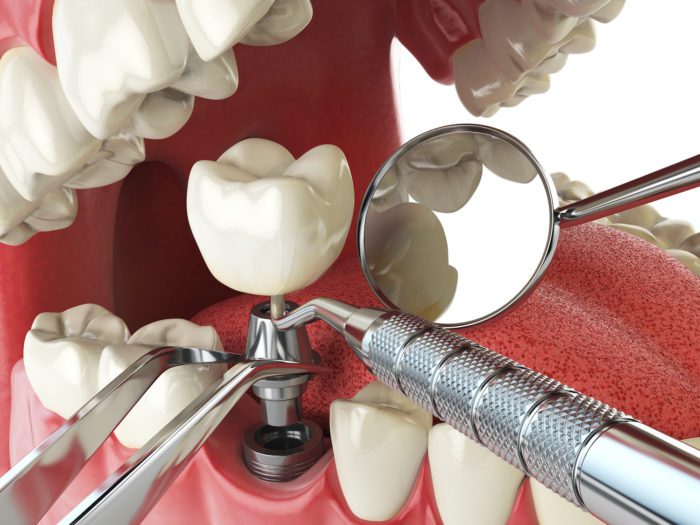A Smile to Last a Lifetime
Dental implants are a great option for those looking to replace missing teeth in our Silver Spring, MD dental office. The process of getting dental implants is complex, but with the help of our professional dentists Dr. Alan Dechter and Dr. Matthew Moy, it can be safe and very effective.
When you’re going in for a restorative dental procedure like dental implants, you want to make sure you know everything ahead of time. You’re getting new teeth and completely revamping your smile. Here, we will take a look at the dental implant process from start to finish.
The dental implant procedure takes place over several months and phases. This process starts with an initial consultation, where the dentist will assess your oral health and discuss your treatment options. From there, our dentists will create a customized plan for you that includes pre-surgical preparation, implant placement surgery, and post-operative care. With proper care and maintenance, dental implants can last for many years!

Step 1: Initial Consultation
Like all of our restorative procedures, it starts with an initial consultation. We’ll talk to you about all the details of your condition. We want to go over your goals for treatment, your budget, and review your medical history. Implant placement is a surgical procedure, so we want to make sure you’re in good enough health to receive this treatment.
At this consultation, we’ll also do a complete oral exam. If you require extractions or gum disease treatment, we will have to do complete them first before the implant procedure can move forward. Dental implants require a certain amount of healthy bone structure. We also want to make sure you have that as well.
Step 2: 3D Imaging and Treatment Planning
We use state-of-the-art dental implant technology to continue with the next step. Our dental staff will take digital impressions and 3D imaging of your mouth. We join this with Simplant digital solutions to meticulously plan out your treatment before we begin. We want to make sure that we find the the ideal placement for the implant.
This technology allows you to be in on the process as well. We can show you exactly where the dentist will place the implant in your mouth. To keep you informed on your treatment, we’ll make sure to answer any questions you have about the procedure. This gives us a great foundation for actually placing the implants in the jawbone.
Step 3: Implant Post Placement
The implant post placement is a single stage surgery. Your dentist will precisely plan it out before placing the posts. We can utilize the Astra Tech Implant System to give you an implant post with deeper threads that will be ideal for long-lasting stability. A dental implant will last forever if taken care of.
On top of the dental implant, we’ll place an abutment. This abutment connects the implant post to your dental restoration. During the healing process, the abutment is there to help shape your gums accordingly. When your soft tissue heals, the dentist will have room to attach the final prosthetic because of the abutment.
After implant post placement, it takes about 3-6 months for you to recover and heal. The dentist will place a temporary dental prosthetic during this time. The healing window is crucial to fuse the implant post with your jawbone and for your soft tissue to heal properly. The implant post will secure a dental restoration and act as a tooth root. This helps prevent bone loss in the jaw.
Step 4: Finishing the Implant
After this healing period is over, you’ll come back into our office to get your final dental restoration. With CEREC technology, we can craft a custom dental crown right in our office that we make just for you. For a fixed bridge or denture, we’ll go through the impressions process and make one to fit you perfectly!
Schedule an Appointment for Dental Implants Today
Do you think dental implants could be the ideal restoration for your missing teeth? They offer a high success rate and are the next best thing to natural teeth. Call our dentist office or schedule an appointment online anytime.
